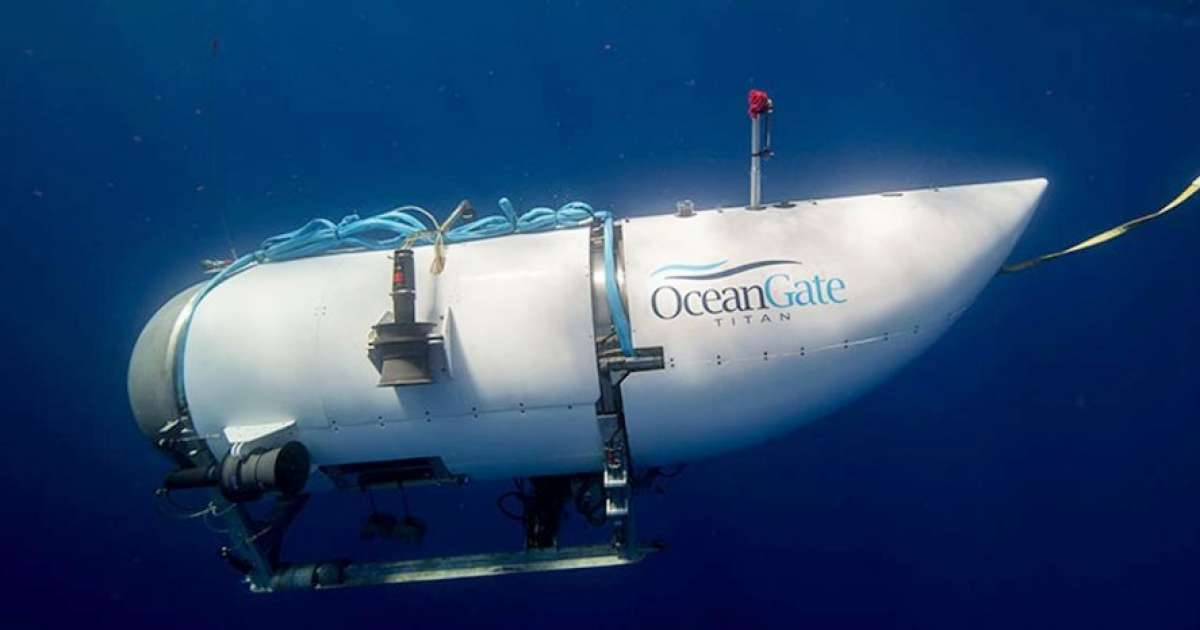
US Navy acoustic sensors detected the implosion of the Titan submersible on Sunday, hours after its descent into the ocean, the same day contact was lost with the ship.
According to institution officials on Thursday, the information was immediately shared with the authorities in charge of the rescue operation, who decided to continue searching for possible survivors.
In a statement issued that day at night, a senior officer said an analysis of acoustic data was carried out and "an anomaly consistent with an implosion or explosion" was detected in the area near where the Titan was operating when it stopped communicating.
"While not definitive, this information was immediately shared with the Incident Commander to assist with the ongoing search and rescue mission," the text states.
"This information was considered with the collection of additional acoustic data provided by other partners and the decision was made to continue our mission as search and rescue and do everything possible to save the lives on board," he adds.
Another Navy officer declared to The Washington Post That type of information is not usually shared publicly until the search for survivors is over. The information collected is considered a "data point."
For his part, Mark Cancian, senior advisor at the Center for Strategic and International Studies, stressed that although the acoustic detection was an important piece of information, the search had to continue until all possibilities were exhausted.
"They suspected what happened, but they couldn't be sure. What you're seeing are just lines on a graph. And if you try to convince people that you weren't doing a search because the lines on a graph indicated an implosion, that's not true." would be acceptable to many," he added.
Cancian recalled that the United States has been using a network of devices to detect underwater noise for decades, and that is why it is not surprising that the implosion of the Titan was detected in this way. "I'd be surprised if they hadn't heard it," he said.
Last Wednesday, the United States Coast Guard reported that Canadian P-3 aircraft detected noises underwater while exploring North Atlantic waters in search of the Titan, after which the rescue teams relocated to the search area.
Although the Coast Guard did not detail the nature or extent of the sounds, the magazine Rolling Stone and CNN - citing internal government communications - reported Tuesday night that Canadian planes detected strikes at 30-minute intervals.
Unfortunately, the next day all hopes were dashed when a Deep-sea robot found 'fragment' area near Titanic, which were presumed to be related to the submersible.
Hours later, a diving expert confirmed to BBC that the remains found belonged to the Titan, and included "a landing gear and rear deck of the submersible."
On Thursday, at 03:00 pm Eastern time in the United States, the Coast Guard announced that the vessel had suffered a "catastrophic implosion" and its five occupants had died.
Rear Admiral John Mauger, director of the search, reported at a press conference in Boston that a remote-controlled robot had discovered "the nose cone, which was outside the pressure room" about 487 meters from the bow of the Titanic.
Later, more remains were found in the area, and after an analysis it was determined that they were consistent "with the catastrophic loss of the pressure chamber."
"We found the bell at the front of the pressure room and this was the first indication that there was a catastrophic event shortly after," he explained.
The remains found on the seabed are "compatible with a catastrophic implosion of the ship," he said.
What do you think?
COMMENTFiled in: